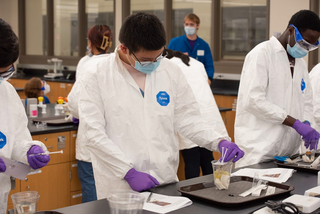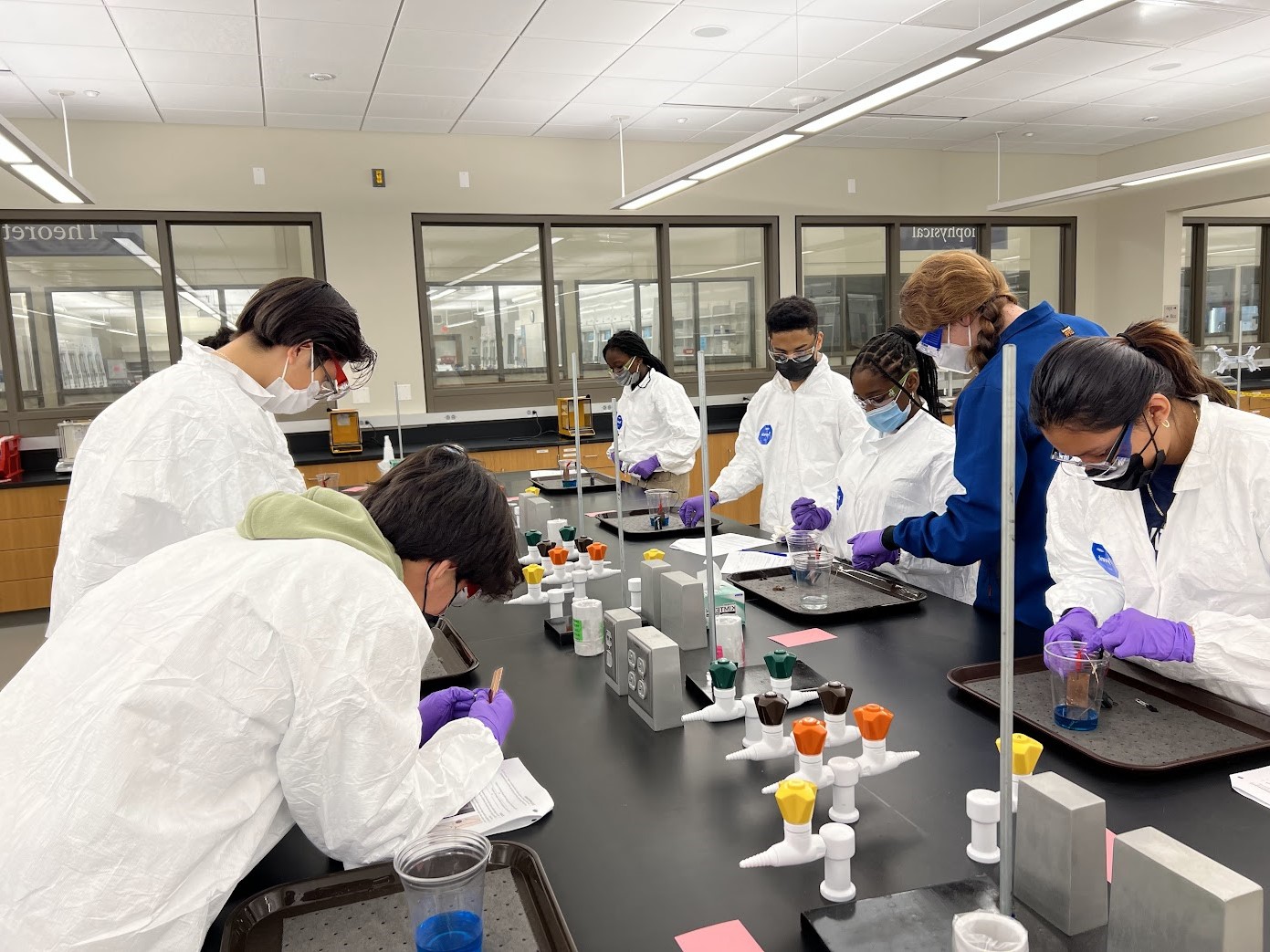The Pathways to Science scholar program offers three five-day workshops on chemistry to high school students during the summer.

The future of sustainable energy is based in electrochemistry. By building their own batteries, redox pairs, solar cells and more, students will learn about the science behind how electrical energy is applied.
One module covers battery chemistry, how to make a battery and how it works. Another module looks at redox properties of elements and coating an object with a layer of metals (or electroplating). Students learn to use electricity to do chemical reactions (electric catalysis), and they do electrolysis of water. They build dye-sensitized solar cells and measure the voltage and current generated by them.
2. How to Control Light and Electrons
In this 60-minute session led by the Yale chapter of the National Organization for the Professional Advancement of Black Chemists and Chemical Engineers, students will construct “voltaic pile” batteries using everyday materials, then use their batteries to light up LEDs.
3. Tardigrades: Super Survivors of Nature’s Extremes
The world is changing fast, and living things must adapt to survive. Rising temperatures, droughts, and shifting ocean conditions are putting stress on life everywhere, but some organisms are experts at handling extreme environments. Tardigrades, also known as water bears, are tiny creatures that can survive almost anything: drying out, freezing, radiation, even the vacuum of space. They’ve been able to survive all five mass extinction events and are even predicted to outlive humankind! But how do they do it?
In this workshop, we’ll dive into the microscopic world of tardigrades to uncover some of their secrets. We’ll use microscopes to observe these incredible animals, explore special proteins that protect their cells, and learn how scientists are using cutting-edge tools to uncover nature’s best survival strategies.
Get ready to think like a scientist and discover what it takes to survive in a changing world!
Sign Up
All of our outreach events and programs (except Nitrogen Fixers) are run through Pathways to Science. Check their calendar and website.
